Fleurs du Mal Magazine


Or see the index
Audio-file
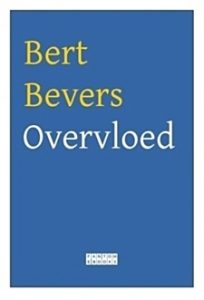 A reading of Ufarassus the Gothic translation of the poem “Overvloed” by Bert Bevers.
A reading of Ufarassus the Gothic translation of the poem “Overvloed” by Bert Bevers.
Translation by HroÞiland Bairteins, Tom De Herdt and J.G. Quak and recorded by Eric Kingsepp.
# Link to Audio-file of a reading of Ufarassus (Overvloed) by Bert Bevers
BERT BEVERS
OVERVLOED
Tien vertalingen van één gedicht
FANTOM EBOOKS
Art Brut Digital Editions
Series Fantom Ebooks
www.fleursdumal.nl
FANTOM 1
Fantom Ebook 2017
ISBN: 978-90-76326-09-2
NUR 306
1ste PDF-uitgave FANTOM, Augustus 2017
audio-file poem by Bert Bevers
fleursdumal.nl magazine
More in: #Archive A-Z Sound Poetry, - Audiobooks, Archive A-B, AUDIO, CINEMA, RADIO & TV, Overvloed

A Death-scene
“O day! he cannot die
When thou so fair art shining!
O Sun, in such a glorious sky,
So tranquilly declining;
He cannot leave thee now,
While fresh west winds are blowing,
And all around his youthful brow
Thy cheerful light is glowing!
Edward, awake, awake–
The golden evening gleams
Warm and bright on Arden’s lake–
Arouse thee from thy dreams!
Beside thee, on my knee,
My dearest friend, I pray
That thou, to cross the eternal sea,
Wouldst yet one hour delay:
I hear its billows roar–
I see them foaming high;
But no glimpse of a further shore
Has blest my straining eye.
Believe not what they urge
Of Eden isles beyond;
Turn back, from that tempestuous surge,
To thy own native land.
It is not death, but pain
That struggles in thy breast–
Nay, rally, Edward, rouse again;
I cannot let thee rest!”
One long look, that sore reproved me
For the woe I could not bear–
One mute look of suffering moved me
To repent my useless prayer:
And, with sudden check, the heaving
Of distraction passed away;
Not a sign of further grieving
Stirred my soul that awful day.
Paled, at length, the sweet sun setting;
Sunk to peace the twilight breeze:
Summer dews fell softly, wetting
Glen, and glade, and silent trees.
Then his eyes began to weary,
Weighed beneath a mortal sleep;
And their orbs grew strangely dreary,
Clouded, even as they would weep.
But they wept not, but they changed not,
Never moved, and never closed;
Troubled still, and still they ranged not–
Wandered not, nor yet reposed!
So I knew that he was dying–
Stooped, and raised his languid head;
Felt no breath, and heard no sighing,
So I knew that he was dead.
Emily Brontë
(1818-1848)
poetry
fleursdumal.nl magazine
More in: Archive A-B, Brontë, Anne, Emily & Charlotte, In Memoriam

Poe’s cottage at Fordham
Here lived the soul enchanted
By melody of song;
Here dwelt the spirit haunted
By a demoniac throng;
Here sang the lips elated;
Here grief and death were sated;
Here loved and here unmated
Was he, so frail, so strong.
Here wintry winds and cheerless
The dying firelight blew,
While he whose song was peerless
Dreamed the drear midnight through,
And from dull embers chilling
Crept shadows darkly filling
The silent place, and thrilling
His fancy as they grew.
Here with brows bared to heaven,
In starry night he stood,
With the lost star of seven
Feeling sad brotherhood.
Here in the sobbing showers
Of dark autumnal hours
He heard suspected powers
Shriek through the stormy wood.
From visions of Apollo
And of Astarte’s bliss,
He gazed into the hollow
And hopeless vale of Dis,
And though earth were surrounded
By heaven, it still was mounded
With graves. His soul had sounded
The dolorous abyss.
Poor, mad, but not defiant,
He touched at heaven and hell.
Fate found a rare soul pliant
And wrung her changes well.
Alternately his lyre,
Stranded with strings of fire,
Led earth’s most happy choir,
Or flashed with Israfel.
No singer of old story
Luting accustomed lays,
No harper for new glory,
No mendicant for praise,
He struck high chords and splendid,
Wherein were finely blended
Tones that unfinished ended
With his unfinished days.
Here through this lonely portal,
Made sacred by his name,
Unheralded immortal
The mortal went and came.
And fate that then denied him,
And envy that decried him,
And malice that belied him,
Here cenotaphed his fame.
John Henry Boner
(1845-1903)
poetry
fleursdumal.nl magazine
More in: Archive A-B, Edgar Allan Poe, Poe, Edgar Allan

Requiescat
Strew on her roses, roses,
And never a spray of yew.
In quiet she reposes:
Ah! would that I did too.
Her mirth the world required:
She bathed it in smiles of glee.
But her heart was tired, tired,
And now they let her be.
Her life was turning, turning,
In mazes of heat and sound.
But for peace her soul was yearning,
And now peace laps her round.
Her cabin’d, ample Spirit,
It flutter’d and fail’d for breath.
To-night it doth inherit
The vasty hall of Death.
Matthew Arnold
(1822-1888)
poetry
fleursdumal.nl magazine
More in: #More Poetry Archives, Archive A-B, Archive A-B, Galerie des Morts
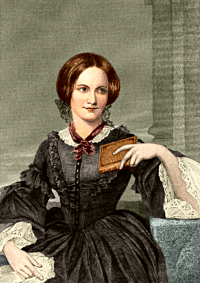
Presentiment
“Sister, you’ve sat there all the day,
Come to the hearth awhile;
The wind so wildly sweeps away,
The clouds so darkly pile.
That open book has lain, unread,
For hours upon your knee;
You’ve never smiled nor turned your head;
What can you, sister, see?”
“Come hither, Jane, look down the field;
How dense a mist creeps on!
The path, the hedge, are both concealed,
Ev’n the white gate is gone
No landscape through the fog I trace,
No hill with pastures green;
All featureless is Nature’s face.
All masked in clouds her mien.
“Scarce is the rustle of a leaf
Heard in our garden now;
The year grows old, its days wax brief,
The tresses leave its brow.
The rain drives fast before the wind,
The sky is blank and grey;
O Jane, what sadness fills the mind
On such a dreary day!”
“You think too much, my sister dear;
You sit too long alone;
What though November days be drear?
Full soon will they be gone.
I’ve swept the hearth, and placed your chair,.
Come, Emma, sit by me;
Our own fireside is never drear,
Though late and wintry wane the year,
Though rough the night may be.”
“The peaceful glow of our fireside
Imparts no peace to me:
My thoughts would rather wander wide
Than rest, dear Jane, with thee.
I’m on a distant journey bound,
And if, about my heart,
Too closely kindred ties were bound,
‘Twould break when forced to part.
“‘Soon will November days be o’er:’
Well have you spoken, Jane:
My own forebodings tell me more–
For me, I know by presage sure,
They’ll ne’er return again.
Ere long, nor sun nor storm to me
Will bring or joy or gloom;
They reach not that Eternity
Which soon will be my home.”
Eight months are gone, the summer sun
Sets in a glorious sky;
A quiet field, all green and lone,
Receives its rosy dye.
Jane sits upon a shaded stile,
Alone she sits there now;
Her head rests on her hand the while,
And thought o’ercasts her brow.
She’s thinking of one winter’s day,
A few short months ago,
Then Emma’s bier was borne away
O’er wastes of frozen snow.
She’s thinking how that drifted snow
Dissolved in spring’s first gleam,
And how her sister’s memory now
Fades, even as fades a dream.
The snow will whiten earth again,
But Emma comes no more;
She left, ‘mid winter’s sleet and rain,
This world for Heaven’s far shore.
On Beulah’s hills she wanders now,
On Eden’s tranquil plain;
To her shall Jane hereafter go,
She ne’er shall come to Jane!
Charlotte Brontë
(1816-1855)
poetry
fleursdumal.nl magazine
More in: Archive A-B, Archive A-B, Brontë, Anne, Emily & Charlotte

My Last Duchess
That’s my last Duchess painted on the wall,
Looking as if she were alive. I call
That piece a wonder, now : Frà Pandolf’s hands
Worked busily a day, and there she stands.
Will’t please you sit and look at her ? I said
‘Frà Pandolf’ by design, for never read
Strangers like you that pictured countenance,
The depth and passion of its earnest glance,
But to myself they turned (since none puts by
The curtain I have drawn for you, but I)
And seemed as they would ask me, if they durst,
How such a glance came there ; so, not the first
Are you to turn and ask thus. Sir, ’t was not
Her husband’s presence only, called that spot
Of joy into the Duchess’ cheek : perhaps
Frà Pandolf chanced to say ‘Her mantle laps
Over my lady’s wrist too much,’ or ‘Paint
Must never hope to reproduce the faint
Half-flush that dies along her throat :’ such stuff
Was courtesy, she thought, and cause enough
For calling up that spot of joy. She had
A heart―how shall I say ?―too soon made glad,
Too easily impressed ; she liked whate’er
She looked on, and her looks went everywhere.
Sir, ’t was all one! My favour at her breast,
The dropping of the daylight in the West,
The bough of cherries some officious fool
Broke in the orchard for her, the white mule
She rode with round the terrace―all and each
Would draw from her alike the approving speech,
Or blush, at least. She thanked men,―good! but thanked
Somehow―I know not how―as if she ranked
My gift of a nine-hundred-years-old name
With anybody’s gift. Who’d stoop to blame
This sort of trifling? Even had you skill
In speech―(which I have not)―to make your will
Quite clear to such an one, and say, ‘Just this
Or that in you disgusts me ; here you miss,
Or there exceed the mark’―and if she let
Herself be lessoned so, nor plainly set
Her wits to yours, forsooth, and made excuse,
―E’en then would be some stooping ; and I choose
Never to stoop. Of sir, she smiled, no doubt,
Whene’er I passed her ; but who passed without
Much the same smile? This grew ; I gave commands ;
Then all smiles stopped together. There she stands
As if alive. Will’t please you rise ? We’ll meet
The company below, then. I repeat,
The Count your master’s known munificence
Is ample warrant that no just pretence
Of mine for dowry will be disallowed ;
Though his fair daughter’s self, as I avowed
At starting, is my object. Nay, we’ll go
Together down, sir. Notice Neptune, though,
Taming a sea-horse, thought a rarity,
Which Claus of Innsbruck cast in bronze for me!
Robert Browning (1812 – 1889)
My Last Duchess
fleursdumal.nl magazine
More in: Archive A-B, Browning, Robert
The first critical edition of the complete poems of Basil Bunting (1900 – 1985), published on the fiftieth anniversary of his masterpiece, Briggflatts.
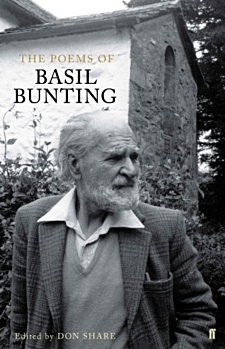 Basil Bunting is one of the most important British poets of the twentieth century, admired early on by Ezra Pound and Louis Zukofsky, and acknowledged since the 1930s as a major figure in the Modernist movement. Faber published a selection of his early work in Pound’sActive Anthology (1933), but Bunting’s reputation was not confirmed until decades later with the publication of his masterpiece, Briggflatts, by Fulcrum Press in 1966.
Basil Bunting is one of the most important British poets of the twentieth century, admired early on by Ezra Pound and Louis Zukofsky, and acknowledged since the 1930s as a major figure in the Modernist movement. Faber published a selection of his early work in Pound’sActive Anthology (1933), but Bunting’s reputation was not confirmed until decades later with the publication of his masterpiece, Briggflatts, by Fulcrum Press in 1966.
Bunting’s work was published throughout most of his life in editions from Oxford University Press, Bloodaxe Books, New Directions and various small presses. This is the first critical edition of the complete poems, and offers an accurate text with variants from all printed sources. Don Share annotates Bunting’s often complex and allusive verse, with much illuminating quotation from his prose writings, interviews and correspondence. He also examines Bunting’s sources (including Persian literature and classical mythology), and explores the Northumbrian roots of Bunting’s poetic vocabulary and use of dialect.
This important work of literary scholarship offers, for the first time, an edition commensurate with the achievement of this neglected Modernist master.
(…)
Night, float us.
Offshore wind, shout,
ask the sea
what’s lost, what’s left,
what horn sunk,
what crown adrift.
(Fragment from: Coda by Basil Bunting)
The first critical edition of the complete poems of Basil Bunting, published on the fiftieth anniversary of his masterpiece, Briggflatts. Basil Bunting is one of the most important British poets of the twentieth century, admired early on by Ezra Pound and Louis Zukofsky, and acknowledged since the 1930s as a major figure in the Modernist movement.
Faber published a selection of his early work in Pound’sActive Anthology (1933), but Bunting’s reputation was not confirmed until decades later with the publication of his masterpiece, Briggflatts, by Fulcrum Press in 1966. Bunting’s work was published throughout most of his life in editions from Oxford University Press, Bloodaxe Books, New Directions and various small presses.
This first critical edition of the complete poems offers an accurate text with variants from all printed sources. Don Share annotates Bunting’s often complex and allusive verse, with much illuminating quotation from his prose writings, interviews and correspondence. He also examines Bunting’s sources (including Persian literature and classical mythology), and explores the Northumbrian roots of Bunting’s poetic vocabulary and use of dialect.
This important work of literary scholarship offers, for the first time, an edition commensurate with the achievement of this neglected Modernist master.
The Poems of Basil Bunting
Basil Bunting
Hardcover
624 pages
Publisher: Faber & Faber
Main edition (2016)
Language: English
ISBN-10: 057123500X
ISBN-13: 978-0571235001
£30.00
Books That Everyone Should Read
fleursdumal.nl magazine
More in: - Book Stories, Archive A-B, EDITOR'S CHOICE
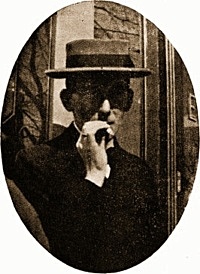
Die Ersten
Die Ersten sinds, sie sind im besten Zug
Vom willenlosen Haufen sich zu lösen.
Erkennend eitel Schimmer, seichten Trug
Der großen Reden abgenützte Blößen,
Klangvolle Phrasen, ein vereinter Schwall
Der überflutet Erdehöhen und Täler,
Allüberall der gleiche Wiederhall,
Der gleiche Köder und der gleiche Wähler.
Wohl wächst der Massen Schrei nach Glück und Brot
Doch übertönt er nicht die Worte der Vertreter,
Es fallen Opfer tiefster Seelennot,
Die Masse fällt dein Zeichen der Verräter.
So lausch ich freudig, wenn mit wildem Schrei
Die Brust erfüllt von froher Zukunft ahnen
Sich einer ringt vom Heerdentaumel frei
Kraftvoll empor auf selbstgewollten Bahnen.
Hugo Ball
(1886 – 1927)
Erstdruck in:
Der Revoluzzer (Zürich),
2. Jg., Nr. 4/5, Mai 1916.
fleursdumal.nl magazine
More in: Archive A-B, Ball, Hugo, Dada, DADA, Dadaïsme
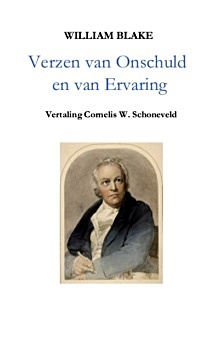
DE ENGEL
Ik had een Droom, die uitleg vraagt!
’k Was een Prinses en was een maagd,
Door een Engel mild bewaakt:
Dwaas verdriet werd nooit gelaakt!
En ik huilde dag en nacht,
En mijn wee werd steeds verzacht,
En ik huilde nacht en dag
En verborg mijn blijde lach.
Dus hij vluchtte op wieken heen;
Toen de dag met blos verscheen
Stelde ik mij, traan droog, te weer
Duizendvoud met schild en speer.
En mijn Engel keerde weer,
Maar mijn wapen sloeg hem neer;
Want mijn jeugdtijd was voorbij,
En grijs hoofdhaar tooide mij
William Blake
vertaald door: Dr. Cornelis W. Schoneveld
THE ANGEL
I Dreamt a Dream! what can it mean?
And that I was a maiden Queen:
Guarded by an Angel mild;
Witless woe, was neer beguil’d!
And I wept both night and day
And he wip’d my tears away
And I wept both day and night
And hid from him my hearts delight
So he took his wings and fled:
Then the morn blush’d rosy red:
I dried my tears & armd my fears,
With ten thousand shields and spears.
Soon my Angel came again;
I was arm’d, he came in vain:
For the time of youth was fled
And grey hairs were on my head
William Blake (1757 – 1827)
Poem: The Angel
Vertaling uit:
Verzen van Onschuld en van Ervaring
William Blake
vertaald door: Dr. Cornelis W. Schoneveld
paperback
gebrocheerd
€ 20,00
ISBN: 978-90-824288-1-0
geïllustreerd
116 blz.
mei 2017
Uitgeverij De Wilde Tomaat
new translations
fleursdumal.nl magazine
More in: - Book Stories, Archive A-B, Blake, Blake, William, TRANSLATION ARCHIVE
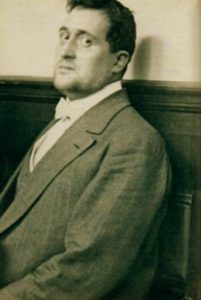
La Chanson Du Malaime
Un soir de demi-brume à Londres
Un voyou qui ressemblait à
Mon amour vint à ma rencontre
Et le regard qu’il me jeta
Me fit baisser les yeux de honte
Je suivis ce mauvais garçon
Qui sifflotait mains dans les poches
Nous semblions entre les maisons
Onde ouverte de la mer Rouge
Lui les Hébreux moi Pharaon
Qui tombent ces vagues de briques
Si tu ne fus pas bien aimée
Je suis le souverain d’Egypte
Sa sœur-épouse son armée
Si tu n’es pas l’amour unique.
Guillaume Apollinaire
(1880 – 1918)
La Chanson Du Malaime
fleursdumal.nl magazine
More in: Apollinaire, Guillaume, Archive A-B, Guillaume Apollinaire
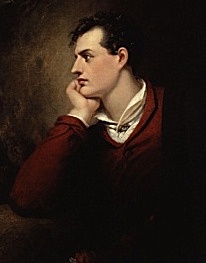
When we two parted
When we two parted
In silence and tears,
Half broken-hearted,
To sever for years,
Pale grew thy cheek and cold,
Colder thy kiss;
Truly that hour foretold
Sorrow to this.
The dew of the morning
Sank chill on my brow
It felt like the warning
Of what I feel now.
Thy vows are all broken,
And light is thy fame:
I hear thy name spoken,
And share in its shame.
They name thee before me,
A knell to mine ear;
A shudder comes o’er me
Why wert thou so dear?
They know not I knew thee,
Who knew thee too well:
Long, long shall I rue thee
Too deeply to tell.
In secret we met
In silence I grieve
That thy heart could forget,
Thy spirit deceive.
If I should meet thee
After long years,
How should I greet thee?
With silence and tears.
Lord George Gordon Noel Byron
(1788 – 1824)
When we two are parted
fleursdumal.nl magazine
More in: Archive A-B, Byron, Lord
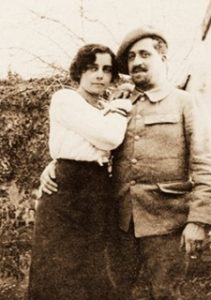
La Dame
Toc toc Il a fermé sa porte
Les lys du jardin sont flétris
Quel est donc ce mort qu’on emporte
Tu viens de toquer à sa porte
Et trotte trotte
Trotte la petite souris
Guillaume Apollinaire
(1880 – 1918)
La Dame
Alcools – poèmes 1898-1913
Paris : Éditions de la Nouvelle Revue française,
troisième édition, 1920
fleursdumal.nl magazine
More in: Apollinaire, Guillaume, Archive A-B, Guillaume Apollinaire
Thank you for reading Fleurs du Mal - magazine for art & literature